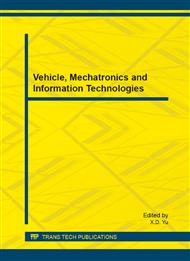p.2356
p.2359
p.2363
p.2367
p.2371
p.2375
p.2379
p.2383
p.2387
Tiered Adaptive Large-Scale Storage System with High Performance
Abstract:
There are various calculations, transmission, and storage devices in terms of performance or reliability characteristics in great physical differences exist of large-scale cluster storage systems. Meanwhile, the actual traffic load data access for storage devices is also not uniform in space and time and there is a big difference. It is unrealistic and unwise if all the data stored on the high-performance devices. In order to resolve this problem effectively, we propose large-scale adaptive tiered storage system architecture in which structure can carry out effective monitoring access to the load and adapting allocation of storage resources based on the application environment. This can fulfill the full potential to the advantages of high-performance storage nodes to improve the performance of large-scale clustered storage systems.
Info:
Periodical:
Pages:
2371-2374
Citation:
Online since:
August 2013
Authors:
Keywords:
Price:
Сopyright:
© 2013 Trans Tech Publications Ltd. All Rights Reserved
Share:
Citation:


